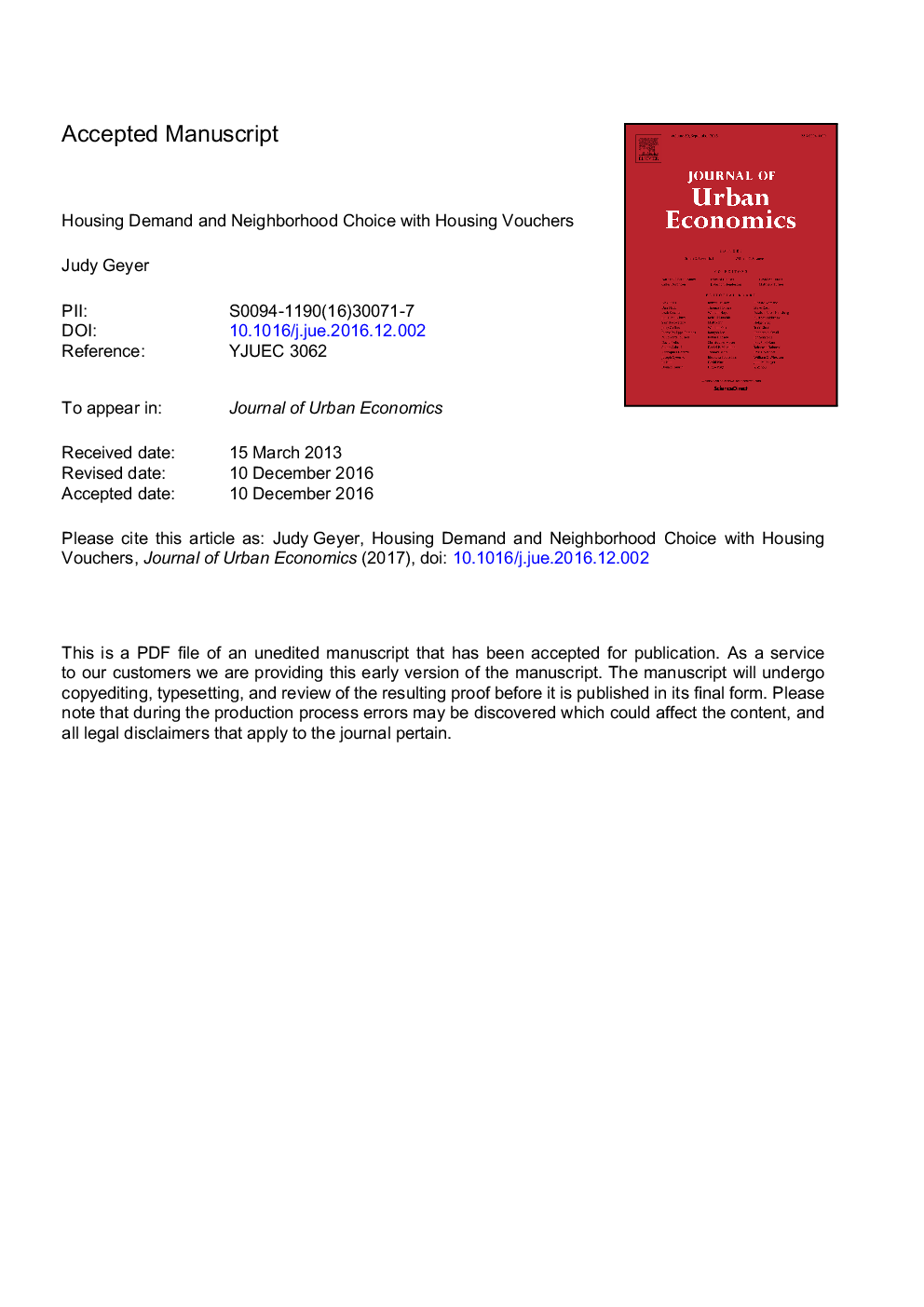| Article ID | Journal | Published Year | Pages | File Type |
|---|---|---|---|---|
| 5101967 | Journal of Urban Economics | 2017 | 49 Pages |
Abstract
This paper presents a new model of household choice of neighborhood and housing consumption, and uses it to predict the effects of alternative housing voucher policies on the choices of voucher recipients and their levels of wellbeing. The model is estimated using household level data from housing voucher recipients in Pittsburgh, aggregate data on unsubsidized households, and a large dataset of neighborhood characteristics including crime rates, school quality, racial composition, and housing prices. Using the estimated model, this study predicts effects of a variety of interesting reforms of the housing voucher program, namely, a more generous voucher subsidy, subsidy amounts that vary with census tract housing prices instead of metropolitan area prices, subsidies that are proportional to the market rent of the specific units, and a requirement that voucher recipients live in a census tract where the poverty rate is less than 30% .
Keywords
Related Topics
Social Sciences and Humanities
Economics, Econometrics and Finance
Economics and Econometrics
Authors
Judy Geyer,
